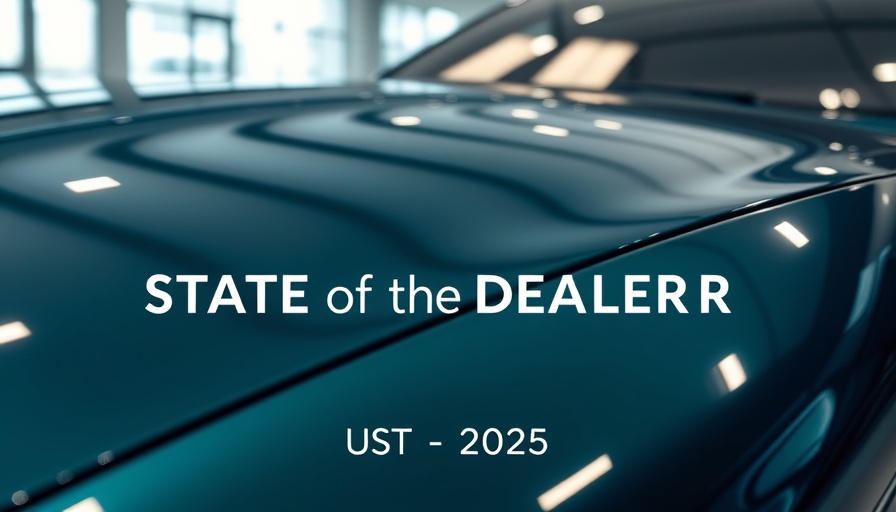
Why Timing Matters in Today’s Car Market
The recent rush by car buyers ahead of potential tariff hikes highlights a critical phenomenon in the automotive industry: strategic timing. As consumers anticipate changes to market conditions, the historical context of buying behavior reveals how broader economic uncertainties can trigger rapid purchasing decisions.
The March Sales Surge: A Significant Indicator
In March alone, U.S. auto sales reached approximately 1.6 million vehicles, underscoring a decisive pivot in consumer behavior. Randy Parker, CEO of Hyundai and Genesis in North America, described the weekend preceding these sales as the best he had witnessed in years, attributed to the looming possibility of tariffs. This surge is indicative of how external pressures can propel consumers into action.
Electric Vehicles Lead the Charge
While all segments saw growth, electric vehicles (EVs) emerged as a driving force in the market. Analysts noted that as federal incentives for EV purchases dwindle, buyers have expedited their decisions, resulting in impressive sales figures for manufacturers like Ford and Honda, who reported significant jumps in EV sales alongside their traditional models.
Real-World Impact: Stories from the Dealership Floor
Tom Maoli, a dealership owner, saw firsthand the eagerness of buyers wanting to secure their purchase before potential price increases. "People are coming in and they want to buy. Now," he shared, reflecting the urgency felt by many consumers.
Future Predictions: What Lies Ahead?
As the automotive landscape continues to evolve, predictions regarding consumer behavior suggest that this trend towards strategic purchasing will persist, particularly as tariffs and economic policies remain in flux. Understanding these patterns will be vital for dealerships to effectively manage inventory and customer relations moving forward.
Counterarguments: The Skeptical Buyer
However, not all potential buyers react uniformly to market pressures. Some customers remain skeptical about the long-term viability of electric cars, citing concerns over charging infrastructure and resale values. Dealerships must navigate these counterarguments to address consumer hesitations and build confidence in their offerings.
Adapting Sales Strategies for Success
Finally, dealership owners and GMs must refine their sales strategies to respond adeptly to buyers' new expectations. This involves training staff to communicate effectively about the benefits of EVs, understanding the urgency behind buyer decisions, and leveraging current market trends to enhance their client interactions.
 Add Row
Add Row  Add
Add 

 Add Row
Add Row  Add Element
Add Element 




Write A Comment